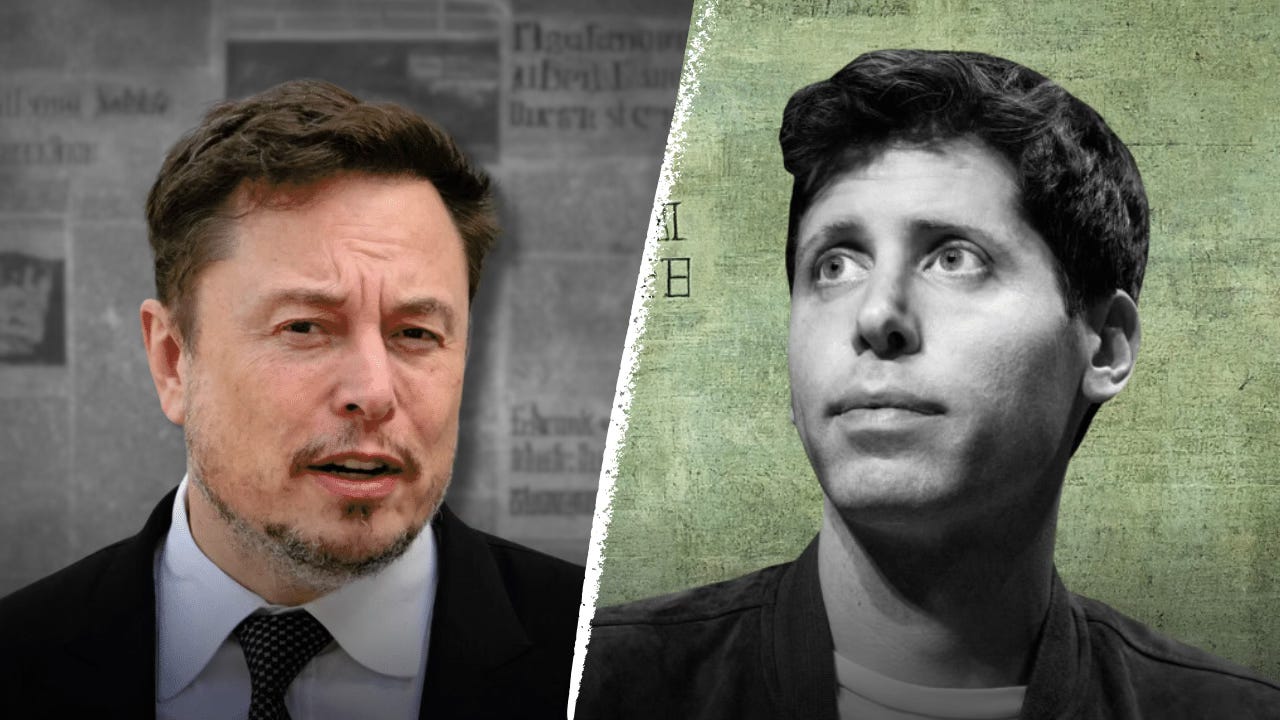Elon Musk's Battle with OpenAI: A Tale of Broken Trust
Artificial Intelligence (AI) has emerged as one of the most transformative technologies of our time. Its potential to revolutionize industries and reshape society has attracted the attention of visionaries like Elon Musk, the renowned entrepreneur and CEO of Tesla and SpaceX. Musk has been vocal about his concerns regarding the risks associated with AI development and has actively supported ethical practices in the field. However, recent developments have led to a legal dispute between Musk, OpenAI, and its former CEO, Sam Altman. In this article, we will delve into the details of this high-profile lawsuit, examining the allegations, implications, and potential outcomes.
The Rise of OpenAI
OpenAI, a research organization co-founded by Elon Musk, was established in 2015 with the mission to ensure that artificial general intelligence (AGI) benefits all of humanity. Musk, along with other prominent tech figures, recognized the potential dangers of AGI and aimed to steer its development towards a safe and beneficial path. OpenAI committed itself to the principles of cooperative orientation, long-term safety, technical leadership, and broad distribution of benefits.
Sam Altman Takes the Helm
In 2019, Sam Altman, a respected entrepreneur and former president of startup accelerator Y Combinator, took over as the CEO of OpenAI. Altman brought with him a wealth of experience and a fresh perspective on the future of AGI. Under his leadership, OpenAI embarked on a new trajectory, seeking substantial funding and adopting a more commercial approach to AI research and development.
The Controversial Move
In October 2021, OpenAI announced its decision to create a for-profit arm, OpenAI LP, to attract external investment. This move marked a significant departure from OpenAI's original mission and principles, raising concerns about the organization's commitment to ensuring AGI's safe and beneficial development. Elon Musk, still a significant donor and supporter of OpenAI, expressed his reservations about this decision, fearing that it could compromise the organization's original objectives.
The Allegations
Elon Musk, in his recent lawsuit, alleges that OpenAI and Sam Altman have breached their contractual obligations by pursuing a commercial agenda that deviates from the organization's founding principles. Musk claims that OpenAI's decision to create a for-profit entity contradicts the cooperative orientation and broad distribution of benefits that he initially envisioned. Moreover, Musk argues that Altman's leadership has led to a fundamental shift in OpenAI's mission and strategic direction, endangering its original goal of ensuring AGI's safety and avoiding potential risks.
The Implications
The lawsuit filed by Elon Musk against OpenAI and Sam Altman carries significant implications for the future of AI development and the broader tech industry. It highlights the tension between the commercialization of AI and the ethical concerns surrounding AGI's potential risks. The outcome of this legal battle could shape the direction of AI research and influence the policies and practices of organizations involved in the field.
Alternatively, OpenAI and Sam Altman could mount a robust defense, arguing that their actions align with the evolving landscape of AI development and the need for external funding. They may contend that the creation of OpenAI LP is an essential step in ensuring the organization's sustainability and competitiveness in an increasingly competitive field.
The Future of OpenAI and AGI
Regardless of the outcome, the lawsuit brings attention to the critical issues surrounding AGI and its responsible development. It underscores the need for clear ethical frameworks, accountability mechanisms, and a commitment to long-term safety. The legal battle between Elon Musk, OpenAI, and Sam Altman serves as a reminder that the development of transformative technologies like AI requires a delicate balance between innovation, commercial interests, and societal well-being.
Artificial Intelligence (AI) is reshaping industries, but Elon Musk's recent legal battle with OpenAI sheds light on critical lessons for the tech community.
Here are the top 3 takeaways:
1️⃣ Mission Misalignment: OpenAI's shift to a for-profit model raised eyebrows, challenging its initial mission of safe AI for all. Musk's lawsuit emphasizes the importance of aligning actions with ethical commitments, urging organizations to stay true to their founding principles.
2️⃣ Leadership Impact: The lawsuit highlights how leadership changes can impact an organization's direction. Sam Altman's strategic shift prompted Musk's concerns about AI's commercialization. Leaders must carefully navigate changes to preserve the core mission and values.
3️⃣ Ethical AI Development: The legal battle underscores the need for clear ethical frameworks in AI development. It prompts a crucial dialogue on accountability, safety, and balancing commercial interests with societal well-being.
Good Reads
Amazon's $1 Billion Investment in AI and Robotics Start-ups
Booking: Staring Down the Barrel of a Hefty €500M Fine in Spain
Microsoft's Bold Move in AI: Partnering with Mistral to Go Beyond OpenAI



